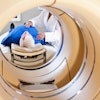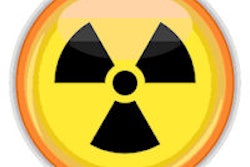Dear MRI Insider,
In the U.K., there's a growing trend toward community-focused healthcare, and this is leading to more imaging requests from general practitioners (GPs). The situation may well be similar in other European countries with a predominantly state-owned or public healthcare system.
But how appropriate are these referrals by GPs? A group from the West Midlands, U.K., has attempted to answer this important question and presented its findings at last week's U.K. Radiological Congress in Liverpool. Click here for the full details.
MRI researchers collected the only Magna Cum Laude award presented at the recent annual meeting of the European Society of Gastrointestinal and Abdominal Radiology (ESGAR), held in Paris. Why did the discerning ESGAR judges single out one study for a special prize? To find out more, click here.
Meanwhile, German and Irish scientists have obtained what they believe to be the first sodium MR images of the heart at 7 tesla that deliver high-resolution images at acceptable scan times. This new publication looks certain to have a big impact on the MRI community. Get the story here.
Postmortem MRI in fetuses also is undergoing rapid development. A U.K. team that includes researchers based at Great Ormond Street Hospital for Children and University College London has worked extensively in this area. To learn more about their latest analysis, click here.
It's essential to know the most common artifacts in MRI and try to overcome them, as well as to recognize the diagnostic pitfalls they can mimic, say experts from Portugal, who also emphasize that these artifacts can have clinical utility and may assist with a diagnosis. Click here for the details.
This is only a small selection of our recent MRI-related articles in your MRI Community. See below for the full roundup.



















